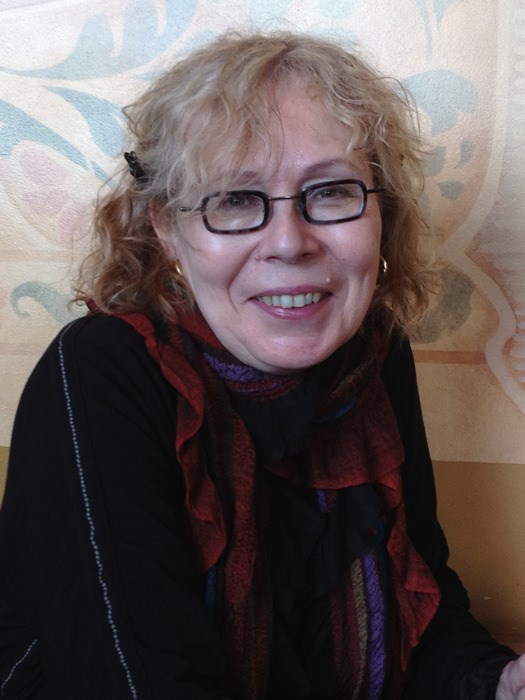Eva Stachniak was not expecting a visit from Varvara that summer day a couple of years ago. Catherine the Great, maybe, but the palace servant who made the greatest Russian empress's rise to power possible?
Varvara's voice was so strong, however, that Stachniak had no choice but to listen.
"She told me a lot about Catherine but not a lot about herself," Stachniak says shortly before she's due at CBC to talk about her bestselling novel, The Winter Place, with Studio One Book Club host Sheryl McKay.
It was Stachniak's job to coax more out of Varvara and to do that, she literally had to create her. Because although Stachniak heard Varvara's voice, Varvara is not a real person, neither now nor in the past. There's no record of her birth, no account of her life. But she's incredibly real to Stachniak whose gift to readers is to make Varvara very real to them, too.
Stachniak had been at her family's cottage in Haliburton, Ontario when Varvara came to visit. Trying to keep up with Varvara's torrent of words, Stachniak wrote 60 pages of text before "I emerged to catch my breath."
The result is a book of palace intrigue that's on the top of many bestseller lists. Varvara (Barbara) is the Winter Palace's narrator, the person who's able to know what others try to hide because it's her job to be one of many palace servant spies. She befriends the young and impoverished Prussian princess who is invited to Russia by the powerful Empress Elizabeth as a potential bride for Elizabeth's nephew and tsar-to-be. If it weren't for Varvara, Catherine might have returned to Poland to be forgotten by history.
"I started the book thinking about Catherine," Stachniak says. "I wanted to write about a woman who wants power, knows she'd be good at it and knows no one will give it to her."
While there are many biographies about Catherine, Stachniak wanted the freedom of fiction. "I read history and respect it and don't change known facts but I don't have the same duty as a biographer does. I can invent stories to suit my narrative."
Both Catherine and Varvara have to be cunning and perceptive. Varvara needs Catherine if she's ever going to have any semblance of personal security and she learns to master the game of palace intrigue; Catherine loves the game of power.
"She's the perfect CEO," Stachniak says, adding that the only contemporary power compatriot might be Margaret Thatcher.
"Thatcher is not a feminist and preferred to be with men. Catherine understands men but she also understands women. But Catherine was a better politician. She was better at manipulating the various factions. [Her policy was] praise loudly but blame softly."
Power did not mean yelling at people or forcing them to do her will; power meant knowing how to make others want to do what you want them to, and, if that doesn't work, change tack.
Catherine's goal is to eliminate serfdom but when her first attempts to give them freedom have bloody consequences, she tries something else. She always chooses the lesser evil and in doing so, earned the epithet of greatness she provided for better education and farming practices (including the introduction of potatoes), created new settlements (in part by gaining control of new lands), invested in the arts and battled the spread of smallpox.
The Winter Palace examines Catherine's rise to power; the next book, which Stachniak is in the midst of writing, shows her when her power wanes in the months before her death at age 67. "Some of her character flaws catch up with her" in the final months of her life, Stachniak says. "A couple of things go horribly wrong for her."
Stachniak took historical descriptions of Catherine's health and asked doctors to come up with a diagnosis (untreated diabetes.) Then she researched what that diabetes would have done to Catherine's body. The same holds true with the historical records of the stroke that killed Catherine in 1796. It likely affected the left hemisphere of her brain which, in essence, turned Catherine into a right-brain person, the side of us that's more compassionate. Stachniak puts herself into Catherine's brain during those final hours, sometimes speaking with the voice of an empress, sometimes speaking with "the voice of someone on the threshold of death who views life in its entirety."
As well as her appearance with the CBC book club tonight (February 27), Eva Stachniak was interviewed on Shaw TV's Studio 4 with Fanny Kiefer. (EvaStachniak.com)



